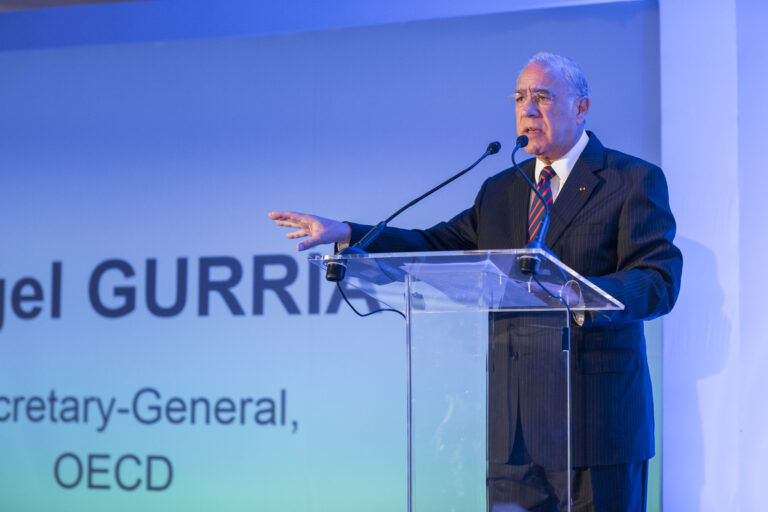An interesting trend has emerged with the advent of the Base Erosion and Profit Shifting (BEPS) project. In contrast to earlier days when the Organisation for Economic Co-operation and Development (OECD) referred to fairness rarely and only in two contexts — in arbitration procedures and as a principle that underlies the existing allocation of taxing rights between states — in BEPS documentation issued by the OECD, references to fairness are now abundant and carry different meanings.
One possible reason behind this trend is weak normative legitimacy of the OECD in the BEPS project and its attempt to govern non-OECD members of the so-called “Inclusive Framework on BEPS” created for the purpose of the project. The normative legitimacy of the OECD — its right to rule, or legally sanction legitimacy — is weak, because, like most intergovernmental organisations, the OECD lacks coercive power. Furthermore, in the case of the non-OECD members of the Inclusive Framework this right is non-existent, since, unlike the OECD, the Inclusive Framework is not premised on any binding agreement. This weak normative legitimacy increases the dependence of the OECD and its advice and standards on sociological legitimacy — the acceptance of a ruler or a rule by a relevant group of actors.
One of the ways in which the OECD attempts to build its sociological legitimacy is through storytelling. By paying attention to the OECD’s legitimising narratives, we can assess its efforts in developing and maintaining its authority and the authority of its standards, and form a judgment as to whether those efforts will lead to tax cooperation on the part of non-OECD members.
Building legitimacy through fairness-based narratives
As soft-power resources, legitimising narratives need to express or refer to values that, according to the narrator’s beliefs, are shared by the narrator’s audience. This reference to values, among other features of the narrative, makes the narrative persuasive. The values of a narrative are related to its “fidelity” (the integrity of the story), and are the narrative’s ideal foundation.
Values can be linked to social and moral norms. When many people share the same values, internalise them, and conform to them in their interactions, these values become social norms. Social norms depend on social practices and create accountability among individuals who are members of a group (social accountability). Social norms confirm the existence of similar moral norms that guide behaviour in particular social interactions. Moral judgments involve principles that apply to any rational agent, are independent of social practices, and create accountability among individuals as individuals (individual accountability). In relation to states, a social norm shapes the behaviour of a state as a member of a group and also makes the state morally accountable in its interactions with non-group members.
Legitimisation and delegitimisation of the authority of an international tax organisation, or the authority of the standards that it develops or promotes, can (but not necessarily should) be based on moral grounds. Fairness is one of these grounds. In the case of the OECD, a legitimisation narrative of fairness would justify the OECD’s authority as a tax-governing organisation or adherence to its standards. Such justification can be demonstrated by linking the outcome of specific tax standards to fairness-based values. In tax contexts, fairness is a quality rather than a value. From a social or moral perspective, this quality, if present in the OECD standards, makes those standards valuable for states and taxpayers, and therefore contributes to their broad acceptance.
Since fairness underlies many common values, fairness-based narratives are a plausible source of soft power for the OECD and potentially a tool in facilitating tax cooperation. However fairness argumentation appears to have its limits, as the analysis of narratives exchanged between the Inclusive Framework members and the OECD during BEPS Action 1 negotiations demonstrates. It appears that the legitimising ability of fairness-based narratives depends on the issue in question and the narrator’s ability to speak the same language of fairness as is used by the target audience.
The limits of OECD’s argumentation
In the BEPS documentation, the concept of fairness most often was used to evaluate substantive or procedural rules or their outcomes, or amendments and alternatives to the existing rules. For instance, the OECD used fairness to justify the standards it developed in response to the income tax challenges of digitalisation (Pillar 1 rules) and to encourage the adoption of those standards by members of the Inclusive Framework.
The fairness (or unfairness) criterion was also applied to evaluate, justify, or challenge actions and processes that involve states or evaluate these actions and processes’ outcomes. In that way fairness was used in relation to withholding taxes and equalisation levy on certain types of digital transactions; the use of a multilateral instrument for changes of existing double tax agreements; justification for standardisation of tax competition; complaints about unfair competitive advantages created as a result of the (non-)taxation of some taxpayers.
Fairness was also an evaluative criterion for both taxpayers’ actions and their impact on domestic tax bases and citizens’ perceptions of domestic tax systems. Finally, references to fairness were used to highlight the expectations. In particular, states expected multinationals to pay their fair share of taxes, whereas taxpayers expected fair treatment by tax authorities and other state bodies.
Fairness-based argumentation often seeks to persuade a collective action but may fail to do so. One reason of such failure is inability of argumentation to connect to values shared by the narrative’s audience, as the OECD’s fairness-based narrative that supports Pillar 1 rules has demonstrated. This narrative suggests (indirectly) that the OECD’s standards will produce a fair (or fairer) outcome for the states that adopt them. By framing its legitimisation narrative around the standards rather than its own authority, the OECD sought to encourage even non-member states to accept standards supported by such narratives while avoiding responsibility for the results of applying those standards.
In its attempts to reconcile conflicting views of states about the fair international allocation of rights to tax income generated in the digitalisation of the economy, the OECD has developed a compromise narrative which was logically inconsistent with states’ original narratives. The OECD claimed, without justification, that the standards proposed by Pillar 1 were “fairer”. Moreover, the Inclusive Framework members did not discuss and agree on what would be the “fair share” of benefits and costs of tax cooperation under BEPS Action 1 and its Pillar 1. The OECD Secretariat made no attempts to facilitate such normative discussion, although this discussion is an essential part of any distributive narrative seeking to achieve tax cooperation by way of fairness arguments. The secretariat focused on technical rules instead. It remains unclear whether the Inclusive Framework members sought strict equality or equality based on other distributive criteria.
In avoiding this politically sensitive issue, the Inclusive Framework members and the OECD eroded the ideal basis of their narratives – the storyline that refers to values. This erosion makes it impossible to find a fairness-based shared value on which the distribution of the material benefits and costs of tax cooperation in the digital era can be premised. As a result, fairness arguments in BEPS Action 1 narratives become ineffective legitimising tools.
In summary, Pillar 1 standards will alter the tax bases of those states that apply them. Unless the Inclusive Framework members agree among themselves on a fairness criterion for these standards, references to fairness can only provide a moral pretext for changes in the existing international income tax regime and fail to generate a source of soft power for the OECD and legitimise its Pillar 1 standards.
This blog is based on: Plekhanova, V 2022 ‘The Legitimising Effects of the OECD’s Fairness-Based Narratives’ Canadian Tax Journal volume 70 issue 4





Recent Comments